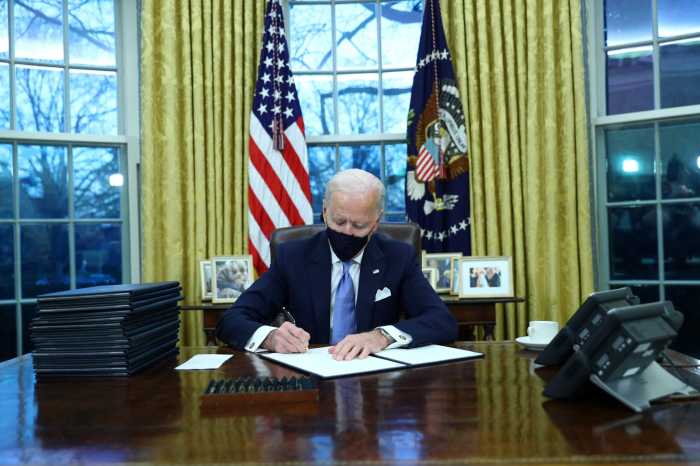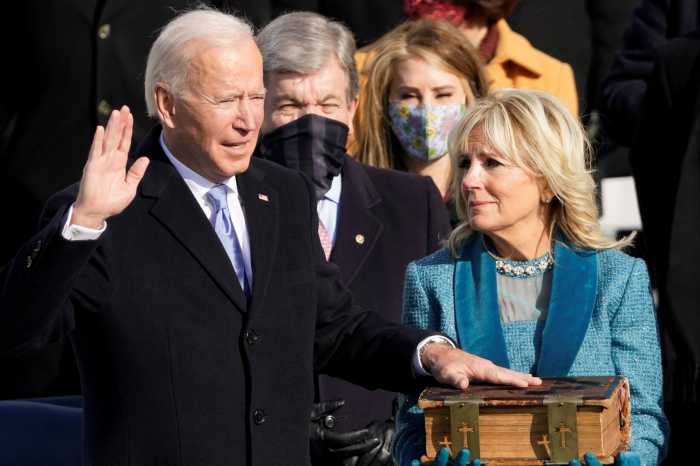US District Judge Robert N. Chatigny has dismissed a lawsuit challenging the Connecticut Interscholastic Athletic Conference (CIAC) policy that allows transgender girls to compete with cisgender girls in interscholastic competition. The April 25 decision avoided ruling on the central question in the case: whether allowing transgender girls to compete violates the statutory rights of cisgender girls under Title IX of the Education Amendments of 1972, a federal statute that prohibits sex discrimination by educational institutions that receive federal financial assistance.
This lawsuit, sparked by successful competition by two transgender girls in Connecticut girls’ track events during the Spring 2019 semester, has been one of the main talking points for Republican state legislators around the country advancing bills to prohibit transgender women from competing. The Justice Department had filed a statement of interest with the court supporting the plaintiffs, although the Biden Administration revoked that statement recently.
The plaintiffs are Selina Soule and Chelsea Mitchell, who graduated from high school last June, and Alanna Smith and Ashley Nicoletti, who are now high school juniors. They are cisgender girls who complain that participation in the girls’ outdoor track season by Andraya Yearwood and Terry Miller, transgender girls who were high school seniors last year, confronted the plaintiffs with “unfair competition.” They filed their lawsuit in February 2020, seeking a preliminary injunction to block Yearwood and Miller from competing in the then-forthcoming season. The court allowed Yearwood and Miller to intervene to defend their right to compete, and the Connecticut Commission on Human Rights weighed in on their behalf.
Before their motion for preliminary injunction could be heard by Judge Chatigny, Connecticut declared a public health emergency due to the COVID-19 pandemic. Interscholastic athletic competition was suspended for the 2020 season, making the request for preliminary relief for that season moot.
But preliminary relief was not the only remedy they sought. The plaintiffs argued that competition by Yearwood and Miller as juniors during the 2019 season had been unfair to them, claiming that their standing had adversely affected Soule and Mitchell’s standing, and that as long as the CIAC rule was in effect, it would have an adverse effect on competition by Smith and Nicoletti (now juniors) in subsequent seasons if they face transgender girls in competition.
The plaintiffs wanted the court to declare that the CIAC policy violates Title IX, and to issue an injunction barring CIAC from letting “males — individuals with an XY genotype — from participating in events that are designated for girls, women, or females.” They also wanted the records of past competitions in which Yearwood and Miller had participated to be “corrected” by removing them and moving up everybody else who had finished behind them by one place. Soule and Mitchell claimed that their future careers (jobs and college athletic scholarships) were adversely affected by not properly reflecting their competitive achievements.
There is no dispute that because they have graduated, Soule and Mitchell lack standing to seek injunctive relief against transgender girls competing this season or in the future. The judge also mentioned a representation in court by attorneys for CIAC that there are no transgender girls currently registered to compete in upcoming girls’ track events in Connecticut, making it unlikely that Smith and Nicoletti would encounter such competition if a track season is held this year or next.
In terms of seeking an injunction against the CIAC policy, everything now turned on whether Smith and Nicoletti, high school juniors, would be adversely affected by the policy. The court does not deal with hypothetical cases, so there is no real basis for arguing that an injunction against the CIAC policy in forthcoming seasons is necessary now.
“There is no indication that Smith and Nicoletti will encounter competition by a transgender student in a CIAC-sponsored event next season,” wrote Judge Chatigny. “It is still theoretically possible that a transgender student could attempt to do so. Even then, however, a legally cognizable injury to these plaintiffs would depend on a transgender student running in the same events and achieving substantially similar times. Such ‘speculative contingencies’ are insufficient to satisfy the case or controversy requirements of Article III” of the Constitution, from which the Supreme Court has derived its rules of “standing” and “mootness” to determine whether there is a “live controversy” for the courts to resolve.
The judge pointed out that if a competitive transgender athlete does emerge in time to present an issue for the next season, the plaintiffs could file a new lawsuit. Responding to their argument that a motion for preliminary relief could not be heard in a timely manner, the judge noted that if the pandemic had not intervened last winter, the court would have been able to rule on the motion for preliminary relief well before the spring track season was scheduled to begin.
Next the judge turned to the question whether to grant the requested relief about changing CIAC records from prior competition, which turned on how adjusting those records could actually redress any injury claimed by the plaintiffs. Judge Chatigny found that Mitchell had the best arguments on this, since changing the records “could provide her with a basis to list four individual wins on her resume, and those wins might well be of interest to a prospective employer. But it seems inevitable that before making an offer to Mitchell, a prospective employer impressed by her record would learn that she did not actually finish first in the four races. In other words, even with the requested changes, Mitchell’s position with regard to her employment prospects would remain essentially the same.”
The court also concluded it was appropriate to dismiss damage claims against CIA, since the Supreme Court has ruled that monetary relief under Title IX is only available if the defendant, a recipient of federal funding, received adequate notice that it could be liable for the conduct at issue, and he agreed with the defendants that they did not receive the requisite notice. While Title IX broadly prohibits sex discrimination in educational programs and activities, the question 0f whether the CIAC policy would be held to violate Title IX was not clear. The Obama Administration had signaled to educational institutions as early as 2014 that transgender girls should be allowed to compete as girls. Although the Trump Administration withdrew that interpretation in 2017, it did not expressly disavow that interpretation of Title IX, stating instead that it was withdrawing the Obama Administration “guidance” on the issue “in order to further and more completely consider the legal issues involved,” and stated the Education Department’s view that the states and local school districts should have the “primary role” in “establishing educational policy.”
Now the Biden Administration has reaffirmed the Obama Administration’s interpretation of Title IX, and although various lawsuits have been filed by groups disputing that interpretation, Judge Chatigny observed that “courts across the country have consistently held that Title IX requires schools to treat transgender students consistent with their gender identity,” citing seven different cases creating an “unbroken line of authority” that “reinforces the conclusion that the plaintiffs’ claims for money damages are barred.”
To sign up for the Gay City News email newsletter, visit gaycitynews.com/newsletter.



































